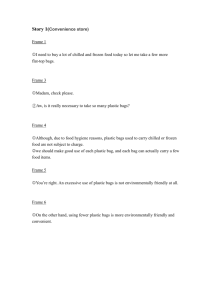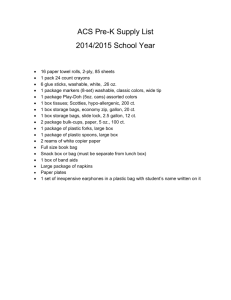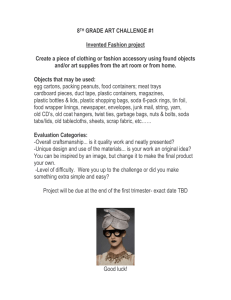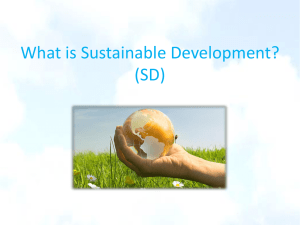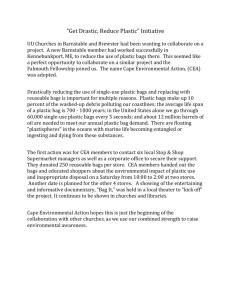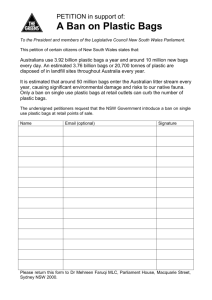Try not to go grocery shopping without your own bags
advertisement
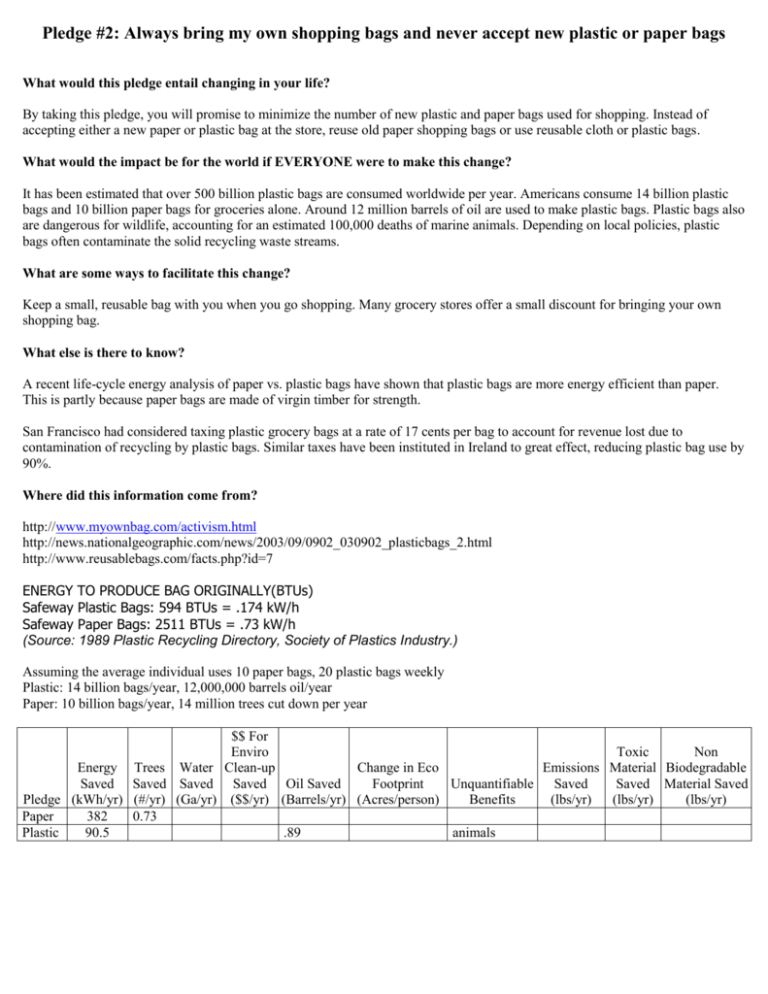
Pledge #2: Always bring my own shopping bags and never accept new plastic or paper bags What would this pledge entail changing in your life? By taking this pledge, you will promise to minimize the number of new plastic and paper bags used for shopping. Instead of accepting either a new paper or plastic bag at the store, reuse old paper shopping bags or use reusable cloth or plastic bags. What would the impact be for the world if EVERYONE were to make this change? It has been estimated that over 500 billion plastic bags are consumed worldwide per year. Americans consume 14 billion plastic bags and 10 billion paper bags for groceries alone. Around 12 million barrels of oil are used to make plastic bags. Plastic bags also are dangerous for wildlife, accounting for an estimated 100,000 deaths of marine animals. Depending on local policies, plastic bags often contaminate the solid recycling waste streams. What are some ways to facilitate this change? Keep a small, reusable bag with you when you go shopping. Many grocery stores offer a small discount for bringing your own shopping bag. What else is there to know? A recent life-cycle energy analysis of paper vs. plastic bags have shown that plastic bags are more energy efficient than paper. This is partly because paper bags are made of virgin timber for strength. San Francisco had considered taxing plastic grocery bags at a rate of 17 cents per bag to account for revenue lost due to contamination of recycling by plastic bags. Similar taxes have been instituted in Ireland to great effect, reducing plastic bag use by 90%. Where did this information come from? http://www.myownbag.com/activism.html http://news.nationalgeographic.com/news/2003/09/0902_030902_plasticbags_2.html http://www.reusablebags.com/facts.php?id=7 ENERGY TO PRODUCE BAG ORIGINALLY(BTUs) Safeway Plastic Bags: 594 BTUs = .174 kW/h Safeway Paper Bags: 2511 BTUs = .73 kW/h (Source: 1989 Plastic Recycling Directory, Society of Plastics Industry.) Assuming the average individual uses 10 paper bags, 20 plastic bags weekly Plastic: 14 billion bags/year, 12,000,000 barrels oil/year Paper: 10 billion bags/year, 14 million trees cut down per year $$ For Enviro Toxic Non Energy Trees Water Clean-up Change in Eco Emissions Material Biodegradable Saved Saved Saved Saved Oil Saved Footprint Unquantifiable Saved Saved Material Saved Pledge (kWh/yr) (#/yr) (Ga/yr) ($$/yr) (Barrels/yr) (Acres/person) Benefits (lbs/yr) (lbs/yr) (lbs/yr) Paper 382 0.73 Plastic 90.5 .89 animals
